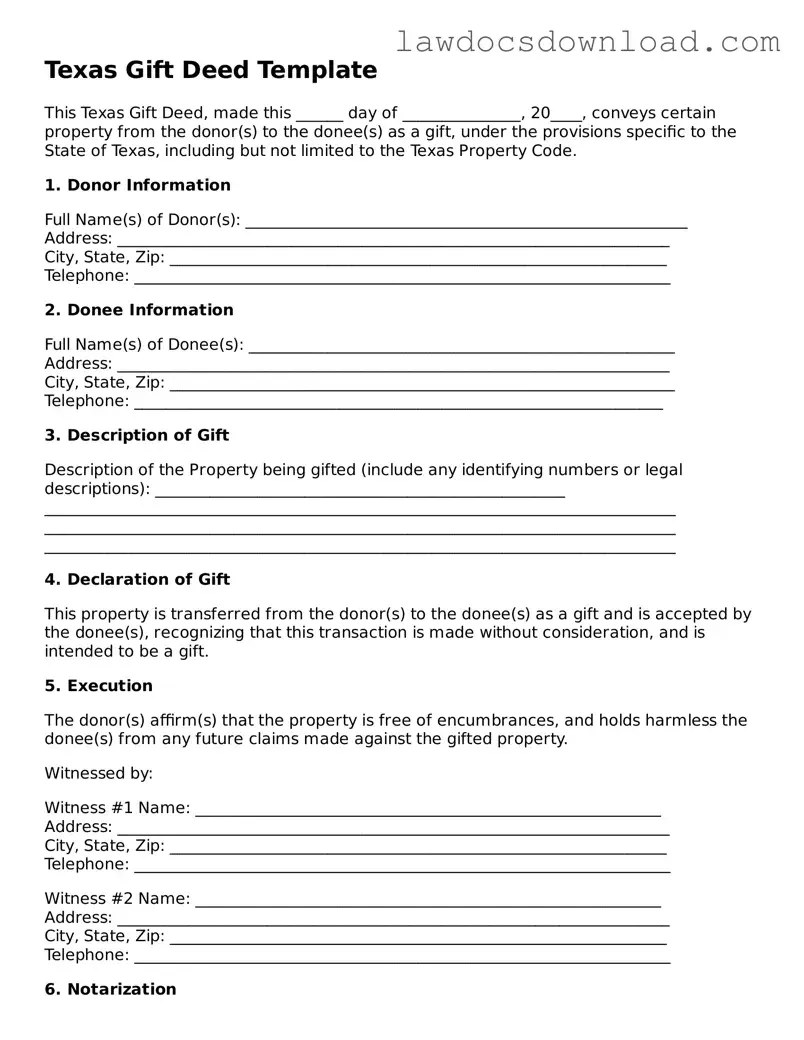Texas Gift Deed Template
This Texas Gift Deed, made this ______ day of _______________, 20____, conveys certain property from the donor(s) to the donee(s) as a gift, under the provisions specific to the State of Texas, including but not limited to the Texas Property Code.
1. Donor Information
Full Name(s) of Donor(s): ________________________________________________________
Address: ______________________________________________________________________
City, State, Zip: _______________________________________________________________
Telephone: ____________________________________________________________________
2. Donee Information
Full Name(s) of Donee(s): ______________________________________________________
Address: ______________________________________________________________________
City, State, Zip: ________________________________________________________________
Telephone: ___________________________________________________________________
3. Description of Gift
Description of the Property being gifted (include any identifying numbers or legal descriptions): ____________________________________________________
________________________________________________________________________________
________________________________________________________________________________
________________________________________________________________________________
4. Declaration of Gift
This property is transferred from the donor(s) to the donee(s) as a gift and is accepted by the donee(s), recognizing that this transaction is made without consideration, and is intended to be a gift.
5. Execution
The donor(s) affirm(s) that the property is free of encumbrances, and holds harmless the donee(s) from any future claims made against the gifted property.
Witnessed by:
Witness #1 Name: ___________________________________________________________
Address: ______________________________________________________________________
City, State, Zip: _______________________________________________________________
Telephone: ____________________________________________________________________
Witness #2 Name: ___________________________________________________________
Address: ______________________________________________________________________
City, State, Zip: _______________________________________________________________
Telephone: ____________________________________________________________________
6. Notarization
This document was acknowledged before me on (date) _______________ by the above-named donor(s).
_____________________________________
(Notary Public)
My Commission Expires: ________________
7. Acknowledgement of Receipt by Donee(s)
I/we, the undersigned donee(s), hereby acknowledge the receipt of the above-described property as a gift and affirm acceptance of the gift.
_____________________________________
(Signature of Donee(s))
Date: _________________________________

